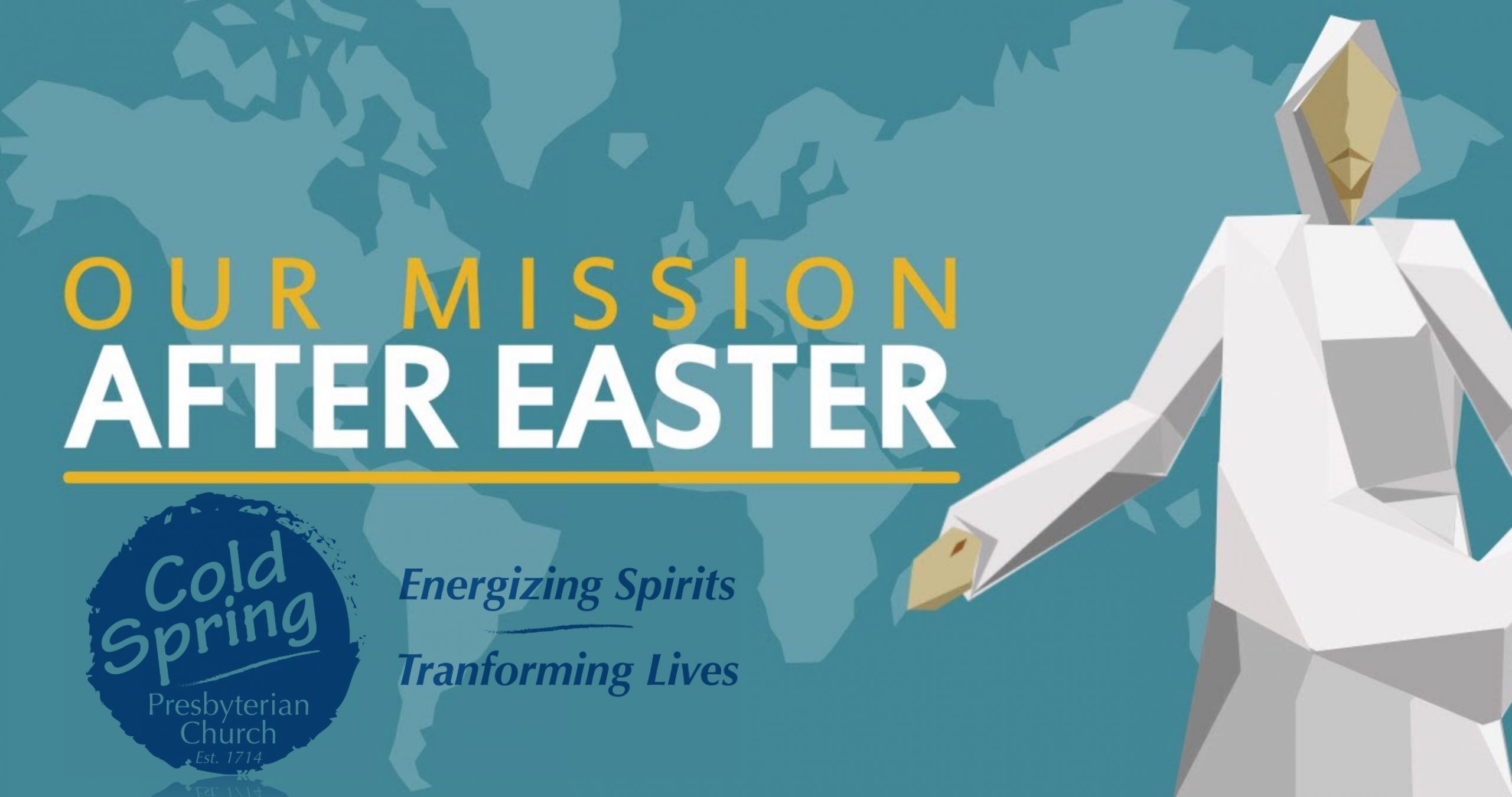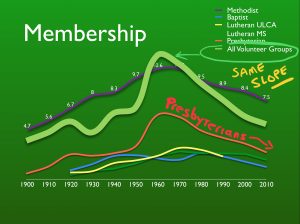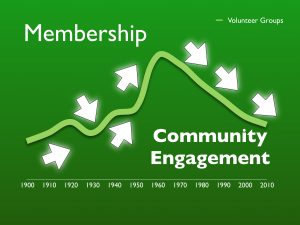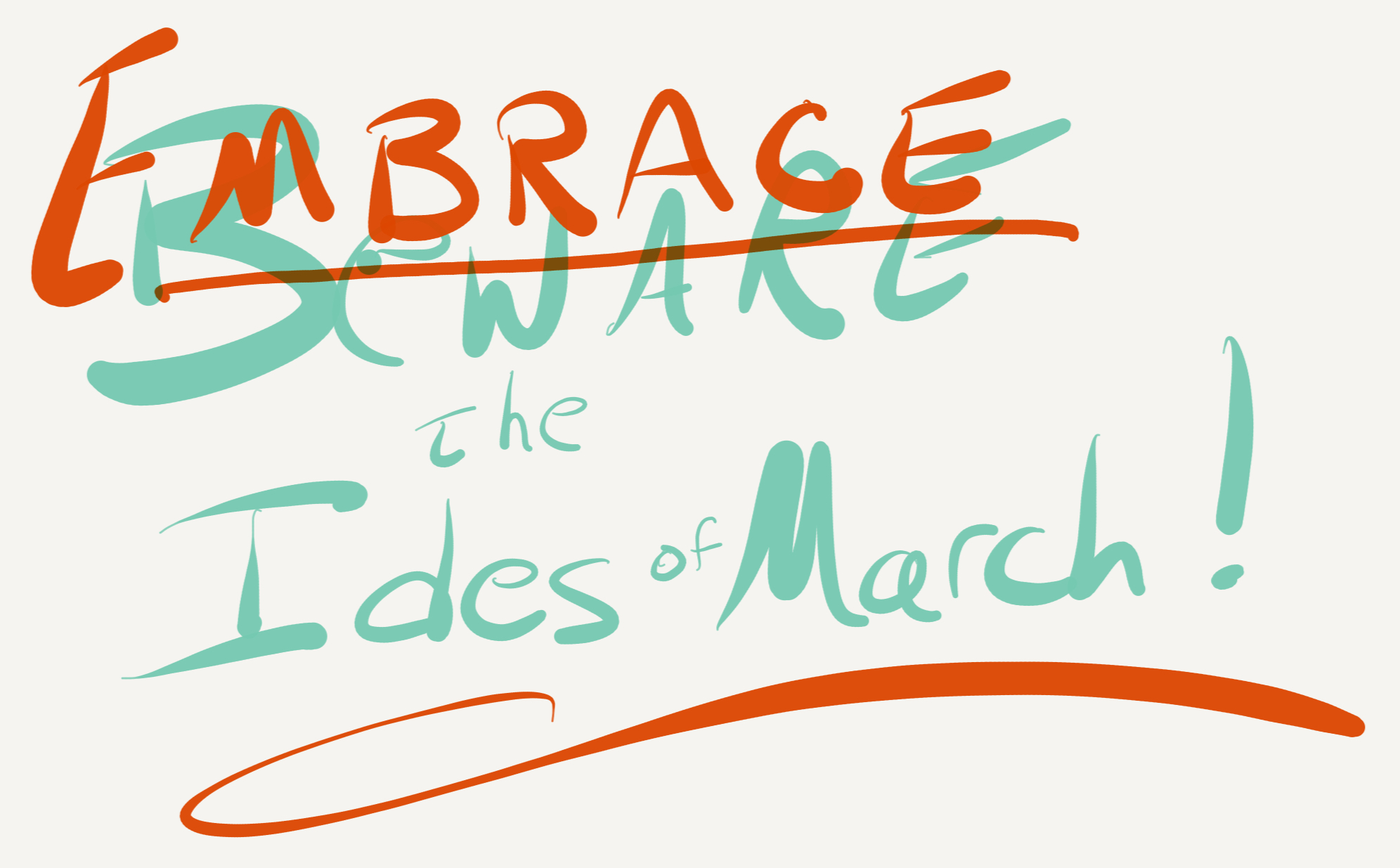
 Hallelujah! Christ is risen!” We respond with another exclamation: “Christ is risen, indeed”!
Hallelujah! Christ is risen!” We respond with another exclamation: “Christ is risen, indeed”!
This proclamation will ring in our ears on April 1, Easter Sunday. It reminds us that just as Jesus was born to us and “moved into the neighborhood” (John 1:14), he became our sacrifice on the cross (1 John 2:2). But the fact that the tomb was empty confirms that God’s Spirit now moves in our hearts and lives (Romans 5:4). We can be assured of a future resurrection life, God’s eternal love, and the joy of living in the power of the Spirit. Now, that’s good news worth sharing! Read the exciting way Paul described our new life:
“But if God himself has taken up residence in your life, you can hardly be thinking more of yourself than of him. Anyone, of course, who has not welcomed this invisible but clearly present God, the Spirit of Christ, won’t know what we’re talking about. But for you who welcome him, in whom he dwells—even though you still experience all the limitations of sin—you yourself experience life on God’s terms. It stands to reason, doesn’t it, that if the alive-and-present God who raised Jesus from the dead moves into your life, he’ll do the same thing in you that he did in Jesus, bringing you alive to himself? When God lives and breathes in you (and he does, as surely as he did in Jesus), you are delivered from that dead life. With his Spirit living in you, your body will be as alive as Christ’s!” (Romans 8:9-11 The Message).
What’s next, after Easter?
The disciples asked that question. So did the throngs of people who must have felt like they were on a roller coaster ride of emotions during Holy Week. Consider Jesus’ Palm Sunday march for life, to Good Friday’s crucifixion and burial. Wow. What a change in mood. Huddled together for comfort, the followers of Jesus stressed and grieved in clouded faith. Now what?
We know the story. Though Jesus’ death and resurrection was predicted, that Jesus Christ would somehow rise from the dead was still unexpected. After Easter, life would be different for sure, but not in the way they might at first have imagined.

 Since I was a kid, church was a part of my Sunday morning routine. That’s how it was for many people in the 1960’s. Actually, from the 1940’s until the 1970’s, everyone seemed to belong to a place to express their belief whatever the religious preference, Jewish, Roman Catholic, Presbyterian or other Protestant tribe.
Since I was a kid, church was a part of my Sunday morning routine. That’s how it was for many people in the 1960’s. Actually, from the 1940’s until the 1970’s, everyone seemed to belong to a place to express their belief whatever the religious preference, Jewish, Roman Catholic, Presbyterian or other Protestant tribe.
Of course, this is not our experience any longer. As we pay attention to our communities and the social trends, we have come to learn that you do not need to belong to express one’s belief. You don’t have to join to formally be a part of a group or church to feel like you belong. What’s more, you don’t have to attend regularly to somehow prove or confirm your connection. Expectations are different now. There are more options and opportunities. 50 years ago high attendance was the norm. But here’s an interesting fact: During the same period, say from 1940 through 1970, the time of peak church attendance in the United States, all other non-profit volunteer associations were on the rise, as well. Think about that. When many churches began experiencing steep declines in attendance, so were the Rotarians, Lions, Optimists, Boy Scouts, and Woman’s Leagues. (Here at Cold Spring Presbyterian Church, our manse and Price Hall was built at that peak time.) Most new church construction and expansion projects occurred then, too.
To understand the church decline, we should try to understand the decline of other volunteer groups, and here’s what we have learned: The fewer community connections the volunteer groups and churches had, the fewer members resulted. And the inverse is also true: Volunteer groups and churches that grow are more deeply connected to their communities.
(Now, back to the disciples feeling lost and abandoned after Jesus’ death.) The natural instinct when stressed and challenged, when ridiculed and attacked, is to huddle together facing inward, hiding out for safety. But when Jesus rose from the dead, and the disciples finally understood that Jesus’ victory over death now made the abundant life in Christ possible. Relieved, they saw Jesus and listened to the news:
“Later on that day, the disciples had gathered together, but, fearful of the Jews, had locked all the doors in the house. Jesus entered, stood among them, and said, “Peace to you.” Then he showed them his hands and side. The disciples, seeing the Master with their own eyes, were exuberant. Jesus repeated his greeting: “Peace to you. Just as the Father sent me, I send you.” Then he took a deep breath and breathed into them. “Receive the Holy Spirit,” he said” (John 20:19-23).
Instead of retreating, Jesus sent them out. Though they likely wanted to stay safely secluded to recall the recent Palm Sunday festivities, Jesus has a different plan.
The disciples were invited to be vulnerable and place their trust in Jesus. So are we. What we can learn from the attendance boom in the 1960’s and its steady slope of decline since is that it is not the time to sit back, hid out in seclusion propping up our beleaguered faith with stories of old. No. We learn from history that when we sincerely make deep community connections in our neighborhoods and listen to our communities, we will work hard and smart to position our ministries and programs to meet real needs. We will help families, old and young, from long-time residents to seasonal guests, to connect to the spiritual resources we offer in Jesus’ name. Believe, Yes! God invites everyone to believe, to be vulnerable and place their trust in Christ. To make that happen, we need to hear Jesus’ words when he said: “Just as the Father sent me, I send you.”
We are on a transformation journey. We can start with the Easter Good News ringing gin our ears by choosing to be a good neighbor, putting love into action, with a spirit of generous reciprocity. We can be sure that as we practice good discipleship, our commitment as a follower of Jesus Christ means we also practice good citizenship.
We demonstrate transformational behaviors by listening to the cries of the poor, becoming more of a neighbor-church. Then God’s story and God’s message will ring out, and our faith in God will become known everywhere (1 Thessalonians 1:7-8). We listen. We serve. We grow. We learn. Let’s do more of that! Churches that transform to establish new community connections become thriving communities of faith!
Thank you for all you do that expressed in so many unique and sacrificial ways to show God’s love in worship, giving, mission events, activities, service, and hospitality. “For God did not send his son into the world to condemn the world, but that the world through him might be saved.”
After Easter, let’s get up and go. Go where? Across the street. Next door. Pick up the phone. Send an email or a card. Invite others to join an event with you. Make a new friend. Reestablish a connection to Bible study, a mission activity, and share the Good News. Receive God’s peace and the power of the Holy Spirit: Make new connections because:
Hallelujah! Christ is risen!”
“Christ is risen, indeed”!
Gratefully,
Pastor Kevin

“Let no debt remain outstanding, except the continuing debt to love one another, for whoever loves others has fulfilled the law” (Rom. 13:8, NIV).
“For it is by grace you have been saved, through faith—and this is not from yourselves, it is the gift of God— not by works, so that no one can boast. For we are God’s handiwork, created in Christ Jesus to do good works, which God prepared in advance for us to do” (Eph. 2:8-10, NIV).
You have no doubt heard the expression Beware the Ides of March popularized by William Shakespeare’s play Julius Caesar(1599). Whether or not Caesar was actually warned by a soothsayer to stay home on the 15th of March (as depicted in the play) we do not know, but that day was indeed Caesar’s last. He was betrayed and murdered by his closest friends on the way to the theater. Most would agree that his fate was justified.
Historically, the Ides of March was simply the days in middle of March, but in the calendar of Rome during the time of dictator Caesar (about 40 years before Jesus was born); March was the first, not the third, month of the year. And according to religious and social practice at the time, it was a day of reckoning observed by paying your debts to start your new year with a clean slate, a fresh start, a new beginning. Not a bad idea, really.
Paul, the Roman citizen apostle, knew the dangers of unfulfilled promises, elapsed opportunities, ignored invitations to do good, and all the weights and encumbrances that held up progress and growth. Writing to the communities of faith in Rome who met in houses and shops, he said, “Give to everyone what you owe them: If you owe taxes, pay taxes; if revenue, then revenue; if respect, then respect; if honor, then honor. Let no debt remain outstanding, except the continuing debt to love one another, for whoever loves others has fulfilled the law” (Rom. 13:7-8, NIV). To Paul, and to Jesus, love motivates caring spiritual practice. (You may want to listen online to recent Lenten messages about Jesus by visiting: https://coldspringchurch.com/sermons.)
The motives of nonprofit and charitable organizations (like communities of faith) are fundamentally different from their for-profit counterparts. Charities, foundations, and churches are motivated to deliver their mission to individuals and families in their communities. All nonprofits are established to serve a socially valuable purpose for the public good. Churches should fulfill that “public good” purpose. Though the interests of the public change over time based on shifting contexts and community needs, the motives of a congregation should be clear even during tumultuous and disruptive change, and especially during our transformation process.
Our Mission Study Team(including Marty and Lenore Bowne, Taylor Burkhardt, Kevin Beare, and Melissa Arnott) is learning more about those “shifting contexts and community needs” to help Cold Spring Presbyterian Church fulfill its charter to love others. For example, we are discovering that many of our neighbors are increasingly facing serious financial stressors as they care for their families. In addition, our research shows that many nearby residents are reluctant to get involved with a church fearing judgement, or thinking the activities are either too boring or irrelevant to their own life experience. We also have learned how debilitating health factors are made worse by the abuse of pain medications. Gaining these and other insights about our neighbors can motivate us to do something in response. How can Cold Spring Presbyterian Church be known as a welcoming and judge-free place for people of all ages? The Deacons, Session, and our other teams and groups positively contribute to how we are viewed in the community. March can be a “new year” for us to make new, informed, connections through our services and ministries of caring.
The “Word became flesh and blood and moved into the neighborhood” (Jn. 1:14). Since we are in the neighborhood too, we can make a difference as our lives are transformed as we become representatives of Christ (1 Thes. 1). As we show God’s love, we welcome the entire community to experience the Good News of Jesus Christ in faith who “gave his life a ransom for many” (Jn. 3:16-17, Heb. 9:15). What an exciting mission to fulfill. We need to puts words into action!
This March is a great time for a health check. During your next doctor’s visit, you may want to ask for recommendations to increase your physical activity. Exercise is critically important to our improved health. But in addition to a medical doctor check-in, we should pay attention to our financial, emotional, and spiritual health, too. We may need a financial check-up with a financial advisor. There are volunteers available, one in our congregation, who can assist you with getting a financial check-up, or assist with the free preparation of your income taxes. (Want to know more? Just ask me and I’ll get you in touch with those who can help!)
Do you need an emotional check-up? Are you feeling overwhelmed? If so, you should know that most everyone from time to time feels that way. Don’t be discouraged feeling alone. To do something about it may mean for you to have a heart to heart talk with a family member, trusted friend, or spiritual leader. You can gain perspective and seek out resources to improve coping skills and discover better ways to enjoy each day. One way is to attend worship services. And when you’re away, stay connected online. You may want to listen to messages from God’s word, children’s messages, and even the music group selections by visiting, https://coldspringchurch.com/sermons.
Exercise the mind, body, and spirit in March!
Or, perhaps you are feeling under-utilized. Not quite sure how to help or get more involved. You may be looking for new opportunities to “serve the public good” as a disciple of Jesus Christ. Have you considered volunteering on one of our teams? Or you might enjoy being a mentor at Cape Christian Academy. The school is nearby and is looking for caring people to work with a child who would benefit from a caring adult mentor. Maybe its you! Cape Christian Academy’s Administrator, Mr. John Spriggs, recently shared about the school and its vision in a Minute for Mission during a recent worship service. Several individuals in our congregation have already found meaningful ways to contribute to Cape Christian’s mission to build students from the inside out. Use your gifts. Get involved, whether for an hour a week, or a few hours a month. Serving others not only benefit those you serve, but will energize your own spirit!
Thank you for all you do! As the transformation pastor, I have seen remarkable demonstrations of growth, engagement, and generosity in our congregation. New people are volunteering, serving, and giving. While the Ides of March may have been a tragic, if still much-deserved day of reckoning for a selfish dictator named Julius, March can be totally different for us.
“For we are God’s handiwork, created in Christ Jesus to do good works, which God prepared in advance for us to do” (Eph. 2:8-10, NIV). God created you to do good works.
Join me in making March the amazing month of caring spiritual practiceas we continue on our Lenten journey toward the hope of Easter.
Pastor Kevin

